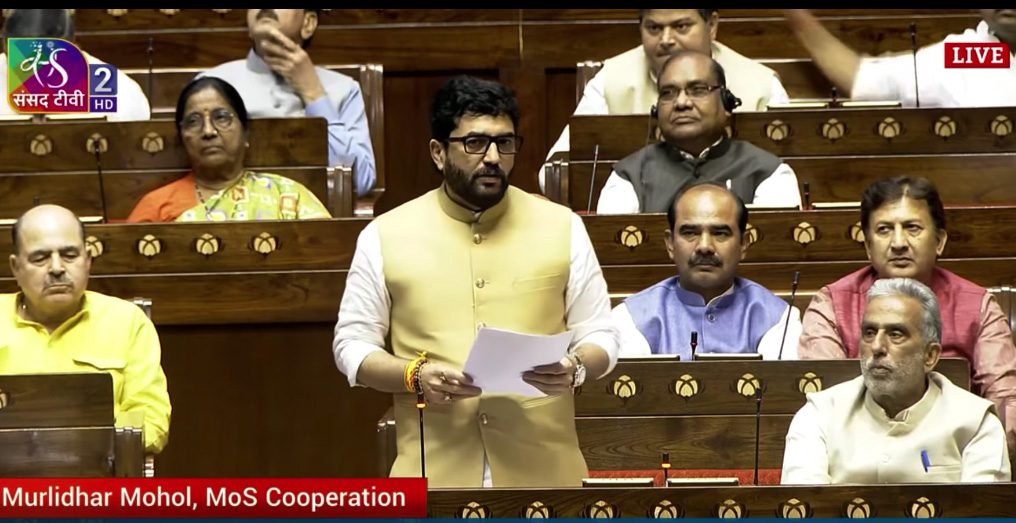The Rajya Sabha has passed the Tribhuvan Sahkari University Bill, 2025, following its approval by the Lok Sabha on March 26, 2025. Union Minister of Cooperation Amit Shah hailed the development as a historic step for the cooperative sector.
In his response to the discussion, MoS Murlidhar Mohol emphasized Prime Minister Narendra Modi’s vision to make India the third-largest economy by 2027, with a strong rural economy playing a pivotal role. He highlighted that over 50% of the population is engaged in agriculture, and the country has around 8 lakh cooperative societies with over 30 crore members. He noted that every farming family has at least one member associated with the cooperative sector.
Mohol pointed out the tenfold increase in the budget allocation for the Cooperation Department, from Rs 122 crore in 2013-14 to Rs 1190 crore today. Previously, cooperative matters were managed by a joint secretary-level officer, but Modi established an independent Ministry of Cooperation to support cooperative societies such as PACS, dairy cooperatives, sugar mills, cooperative banks, and textile mills.
He praised Home Minister and Minister of Cooperation Amit Shah as the first minister in this sector with hands-on experience, having worked in PACS, market committees, district cooperative banks, and state cooperative banks. Under Shah’s leadership, the ministry introduced 60 new initiatives to revamp the sector, starting with strengthening PACS. Amendments to PACS bye-laws have made them multipurpose, with 32 states and union territories adopting these changes.
Mohol outlined the expanding role of PACS, stating that 43,000 PACS now run Common Service Centers, 36,000 operate Pradhan Mantri Kisan Samridhi Kendras, and 4,000 manage Pradhan Mantri Jan Aushadhi Kendras. Some PACS even run petrol pumps. He stressed that strengthening PACS is crucial for empowering farmers and developing villages.
The government is also investing Rs 2516 crore in computerizing 66,000 PACS, aiming to create 2 lakh PACS, with 14,000 already established. The target is to reach 3 lakh PACS in five years. To ensure inclusivity, new regulations mandate representation of women and SC/ST members on PACS boards, promoting social justice in the cooperative sector. Additionally, a National Cooperative Database has been developed to provide comprehensive sectoral insights.
Mohol announced that the National Cooperative Policy is in its final stages and will soon be unveiled under Modi’s leadership. He highlighted the establishment of three national-level cooperative societies—Bharatiya Beej Sahakari Samiti Limited, National Cooperative Exports Limited, and National Cooperative Organics Limited—benefiting 34,000 cooperative institutions and increasing farmers’ incomes.
The Ministry has also introduced the world’s largest food storage scheme for farmers through PACS, reducing transportation costs and providing financial benefits. Financial assistance to cooperatives through the National Cooperative Development Corporation has surged from Rs 5300 crore in 2013-14 to Rs 1.28 lakh crore.
Mohol underscored the need for institutional support to enhance efficiency and innovation in cooperatives. The establishment of Tribhuvan Sahkari University will address challenges such as mismanagement and outdated technology, offering structured training to meet the estimated demand for 17 lakh skilled professionals in the cooperative sector over the next five years. The university aims to nurture cooperative values among youth and encourage careers in this field.













































